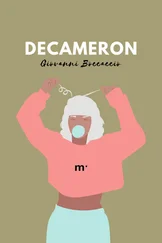I’m telling you — you just can’t make this stuff up.
Nearly every Saturday night for the last five years, Father Mullavey had driven from his parish in Kansas City, Missouri, across the Intercity Viaduct Bridge, and into the Strawberry Hill neighborhood of Kansas City, Kansas, to visit his childhood chum and fellow altar boy, Herman Klar. The two men, both in their late forties, drank Schnapps and sometimes Scotch whiskey, and if the priest drank too much, Herman and his wife Jelena would play chauffeur and even tuck him into bed in the rectory — ever so quietly — so that Mrs. Davies wouldn’t wake and give him a dressing down the next morning for his shameful un-priestlike inebriety.
Father Mullavey was fond of the widow Davies and would have married her if the Roman Catholic Church ever came to its senses on this whole celibacy matter. This is what Herman’s wife Jelena believed. Jelena was of every sort of opinion under the sun, including how to make the world a better place on her own terms. She was in her mid-forties, the mother of twin daughters, each recently returned to college in Ohio on this early September weekend. The daughter of Croatian parents, Jelena Lisinki Klar had grown up in Strawberry Hill among Croatian meatpackers and their bustling, garrulous wives. Jelena inherited her big hands and large frame from her father and her assertive tongue from her mother. There was no debate to be brooked on the decision to buy the little gingerbread house on Thompson, which sat on a bluff overlooking the Kansas River. Because Jelena’s roots were there.
And she wanted her roots back.
The two men sat on the back porch, cocktail glasses in hand, itemizing aloud all of the things that over the years had rolled down the steeply sloping backyard and into the river. “The girls had a beach ball when they were four, five years old,” Herman recalled with a chuckle. “JELENA! COME OUT HERE FOR A MINUTE!”
Herman’s wife stepped out onto the ancient wooden porch that she and her husband and their two girls had shared for over fifteen years with intermittent colonies of termites and intermittent tank-sprayer-armed employees from the Smithereen Exterminating Company. “I was about to pop up some Jiffy Pop, Herman. Miss America starts in ten minutes.”
“They were b-burning bras this afternoon,” said the priest. He peered off into the distance as if focusing his gaze on the Boardwalk in Atlantic City, the site of that day’s acts of undergarment mischief.
“Who?” asked Herman. “The contestants?”
“Of course not. The — the — the protesters. The women’s libbers.”
Jelena put her hands on her hips and tapped her foot. “What did you want, Herman?”
“That beach ball we used to have — whose idea was it to leave it in the backyard so it would roll down the hill?”
“I don’t know, Ljubavi,” said Jelena, employing her favorite Croatian term of endearment for her husband. “How can I remember something from that far back? And they didn’t burn their bras, the protestors. The police wouldn’t let them. They said the fire would engulf the whole boardwalk. It’s made of wooden boards, you know.”
“Why would they want to burn their bras anyway?” asked Herman.
“Do you mean that, Herman? Do you mean that question? Tell him, Father. Tell my husband, who is still stuck in the year 1946, why women would protest the Miss America pageant.”
Herman stood. He teetered, grabbing the arm of the Adirondack chair he had bought at a yard sale for only four dollars because there were two slats missing in the back. Herman was drunk and a little dizzy. He drank only with his friend Pete the priest, which meant he drank only once a week. The alcohol always went straight to his head. “Sometimes, honey, I wish this was still 1946—when it wasn’t so hard for men and women to figure out what was expected of them, I mean, genderly speaking.”
“I said 1946, Ljubavi, because that was the year we married. Of course, now that I think about it, it was also the year that most of us female factory workers got our walking papers.”
“How else were we veterans supposed to find jobs if Rosie the Riveter didn’t give up her — her what , Peter?”
“Her air hammer,” supplied the priest. He took a sip of his Schnapps and made a small vocal exhalation that sounded halfway between a satisfied “ahhh” and the release of steam from a metal riser. “Tell me, Jelena,” said Pete, “if you endorse what these women are doing — what it is that they — they — they stand for, why are you so fired up to go sit and watch—”
“And watch with your Jiffy Pop,” interjected Herman, settling himself back into his wooden Adirondack chair with the two plastic lawn chair replacement slats.
“Watch the pageant,” finished the priest. Peter Mullavey stared out at the dramatically sloping backyard and whistled, and then said, “You could break your neck cutting that grass, Herman. How do you do it?”
“I use a cylinder mower with an extra-long handle,” answered Herman, matter-of-factly.
“If you must know—” said Jelena.
“How do you — excuse me, Jelena. How do you keep from losing it, Herman? Losing the mower?”
“If you must know—” said Jelena with growing impatience.
“Sometimes I don’t. I’ve lost three. That’s why I stopped using an expensive gas mower and got me one of those old hand-propelled jobs from the Iron Age.”
“I am watching the pageant,” pursued Jelena in service to an answer whose related question had long been forgotten by her husband and his equally toasted sacerdotal best friend, “because there is a girl who’s competing this year who grew up with the cousin of a friend of mine. You remember Alana, who lived down the street from us in Overland Park? Well, she knows the girl — she’s met her. She’s in the pageant this year. She’s Miss Illinois.”
“Sit down,” said Herman, pulling his wife down upon one of the wide, flat arms of the Adirondack chair.
“I can’t. I have to make popcorn.” Jelena squirmed but she didn’t get up.
“It’s a beautiful night,” said Herman. “I feel like we live on the edge of the world. You should see the sunrises from this back porch, Petey. You’re never here for the sunrises. I know why all those Croatians came here with their Dalmatian dogs and their plum wine. They came for the sunrises and the — do you smell that, Petey? Do you smell that smell?”
“It wasn’t me.”
“No, no, Petey. It’s the smell of American enterprise. The smell of American meat. Of ground round and sirloin and brisket and chuck.”
Jelena pushed her husband away and rose from the chair. “I have to see how Alana’s friend does. I owe it to Alana after she volunteered to give me a kidney after the car wreck. My point is this: that there’s something about the pageant that seems a little old-fashioned in this day and age — with all the changes going on in the world. I’ll admit it. All those women being asked to parade around like—”
“Mooooo!” said Pete the priest and both men chortled and some Schnapps escaped from Herman’s nose.
Jelena ignored this. “And women have a right to protest it. Just as women have a right to participate , if they want to.”
The priest sat up in his chair. The chair wasn’t from upstate New York. It was a traditional rocking chair that stopped rocking after it was nailed down following an incident in which a visitor to the house — a neighbor with a restless nature — rocked herself off the porch and tumbled down the hill like Jill of the familiar nursery rhyme. “Excellent p-p-point, Jelena. But here’s what — what — what I want to know, if you’ll be so kind as to — there’s the Folly Theatre across the river. It’s a burlesque house and there’ve been religious groups — none of them Catholic, I don’t think, although I think I saw a nun with a sign. And — and — and they — they have been protesting. Which is apparently what people are doing this year. It’s the — the — the thing this year — all this protesting and th-throwing smoke bombs and people burning their — their — draft cards and burning their underclothes and what have you. And my question to you, Jelena, is this: a woman has the right to do what she wants with her body, with her — her life , does she not?”
Читать дальше












